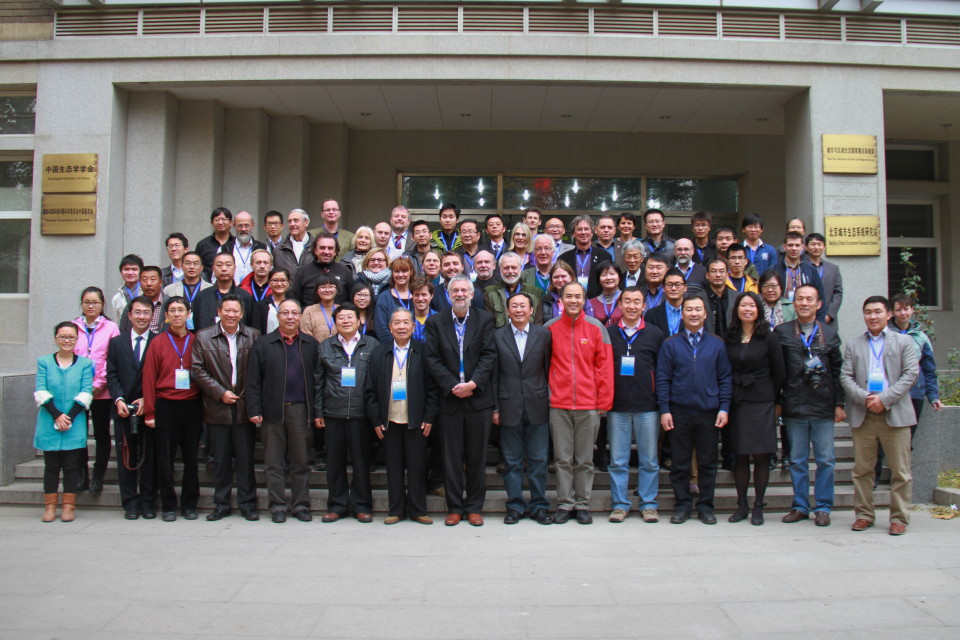
Goose Specialist Group
The Goose Specialist Group of both Wetlands International and the IUCN-Species Survival Commission seeks to strengthen contacts between all researchers on migratory goose populations in the northern hemisphere. Annual meetings are held since 1995. At present about 400 people have joined this Specialist Group. Download the profile.
Name and Contact Details Coordinators
Western Palearctic
Historically the focus of the Group is on migratory geese in the western palearctic and a database with goose censuses from the western palearctic is maintained by a network of national co-ordinators. The present Global Coordinator is Dr Barwolt S. Ebbinge ([email protected]), based at the Centre for Ecosystem Studies at Alterra in Wageningen (Wageningen University and Research Centre), the Netherlands. The Group maintains close contacts with goose researchers in North America and East Asia.
North America
More recently contacts with researchers in North America are more firmly established and the tri-annual North American Arctic Goose Conferences (NAAG) are now visited regularly by European and Asian goose workers as well. Dr Ray Alisauskas ([email protected]) based at the Canadian Wildlife Service in Saskatoon, Saskatchewan (Canada) is the liaison officer for North America.
East Asia
Links with goose researchers in East Asia are maintained by Dr Masayuki Kurechi of the Japanese Association for the Protection of Wild Geese ([email protected]) in Wakayanagi (Japan). The 4th annual meeting of the Goose Specialist Group was held in Japan to improve contacts with goose researchers in East Asia. This was in January 1999 in Matsushima Bay. Also members of the Russian Goose and Swan Study Group strengthen the link with East Asia, because they are involved in studies both in the western palearctic and in East Asia.

Structure of the Group
Under the umbrella of the Group separate working groups deal with special topics, e.g. the Lesser White-fronted Goose Working Group, which focuses on the globally threatened Lesser White-fronted Goose. Also other working groups are mainly species oriented, e.g. the Greylag Goose Working Group, The Bean Goose Working Group, the Red-breasted Goose Working Group, etc.
On the web-site www.geese.org/gsg information about these working groups can be found.
A major achievement of the Group is an impressive compilation (edited by Jesper Madsen, Tony Fox and Gill Cracknell) of the current knowledge of the status and distribution of the goose populations of the western palearctic. Through the Group individual marking programmes of geese (with coloured and engraved leg-rings and neck-collars) are being co-ordinated within the western palearctic.
Communication and Website
In the past special bulletins were printed and mailed around by the Danish National Environmental Research Institute, but now we only print the abstracts of papers presented at the Annual Meetings as a special booklet. Proceedings of the 10th annual meeting (Xanten, Germany) have been printed, and those of the subsequent meetings are being edited.
The Goose Specialist Group Bulletins are produced regularly. To access and download all the issues, click here. More extensive information about the Goose Specialist Group can be found on the special website www.geese.org/gsg.
Meetings of the Goose Specialist Group
The 13th meeting of the Goose Specialist Group was held jointly with the Goose, Swan and Duck Study Group (GSDSG) of northern Eurasia in Elista, Kalmykia (Russian Federation) between 24 and 29 March 2011. A report of the meeting is available on http://www.geese.org/gsg/. More extensive information on http://onlinereg.ru/Elista2011 (Russian) or http://onlinereg.ru/site.php?go=153&lang=ENG (English). On the website http://www.kalmpriroda.ru/n58.html of the Republic of Kalmykia a special news item was dedicated to this conference.
Arctic Birds Breeding Conditions Survey
The Arctic Birds Breeding Conditions Survey (ABBCS) is a joint venture of the International Wader Study Group and Wetlands International’s Goose and Swan Specialist Groups. The project aims to collate information on environmental conditions on the breeding grounds of Arctic nesting birds (in particular, waders and waterfowl) in a persistently updated database. Analyses of data on bird numbers and breeding performance during the Arctic summer in relation to climatic, predatory and other relevant factors can give insights into the ecological processes acting at wide scale, and also provide valuable information for the conservation of sites and species. Visit the ABBCS website for more information.
